Title
Incentive Design for Efficient Federated Learning in distributed system : a Game Theoretical Approach
Description
There is an increasing interest in a new machine learning called Federated Learning (FL). This technique allows nodes to participate in the training model where each node contributes to the learning process by independently computing the gradient based on its local data. This process is repeated until reaching an accuracy level of the learning model. This paradigm is strongly supported by the machine learning community since it allows to protect the user data privacy because local training data are not shared. The growing demand for federated learning technology has produced a number of tools and frameworks such as Leafn, PySyft and PaddleFL while opening new challenges to tackle. One of the most important for the future of AI is to keep it sustainable. Given the heterogeneity of datasets, a natural theoretical analysis is to identify under what conditions the shared global model is better than independent models running at local devices. This of course depends on how the data is distributed among them. Thus a natural question of each node is how much improvement can be expected via federated learning? Or maybe it is more beneficial to join a subset of nodes to build a federated learning system. Here we will be addressing questions such as: Under which conditions would such a bargaining process result in any agreement, (i.e., can the nodes agree on anything, given their selfish nature?)? Would the outcome of such an agreement be beneficial from a system-wide/privacy perspective? What is the role of the central server (coordinator) at each coalition that guarantees the model accuracy? These give rise to novel mathematical approaches that we intend to tackle, including markov decision process, partially observable deep reinforcement learning, regret minimization and stackelberg equilibrium.
Requirements
Master in computer science or similar discipline
Background in Game theory and machine learning
Ability to work in interdisciplinary teams and good communication skills in English
Vey good experience in python (Pytorch) or matlab
NLP knowledge will be appreciated
How to apply and/or get further information
Applicants must submit official academic records for their bachelor and masters education. Applicants should contact Dr. Rachid Elazouzi (rachid.elazouzi@univ-avignon.f) and Dr. Mohamed Morchid (mohamed.morchid@univ-avignon.fr) with a letter of interest, transcripts, and CV with academic background, publication list and list of references.
